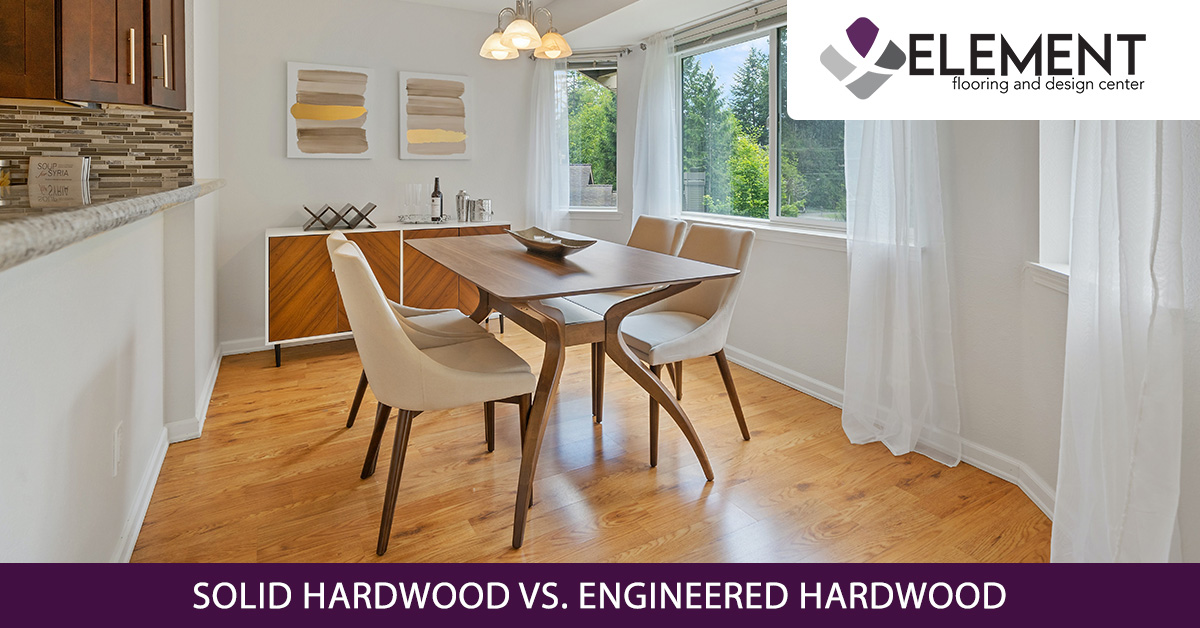Solid hardwood may be fairly straightforward in terms of understanding what it is, but have you heard of engineered hardwood? It looks virtually the same as solid hardwood but has several distinct advantages over it. It consists of anywhere between three and five layers. The top layer consists of a real hardwood veneer. Layers below this usually are constructed from wood fibers, plywood, and occasionally even stone dust. Because engineered hardwood is resistant to humidity and temperature changes, it is also well suited to in-floor heating systems.

Solid hardwood, besides having a luxury and quality appeal, also has some key features that set it apart from engineered hardwood. Namely, its ability to be ‘repaired’ over and over. While it may not have the same level of durability and reliability as engineered hardwood, solid hardwood can be sanded down and refinished. Some hardwoods can be refinished 9-10 times throughout their life. Before its first refinish, hardwood is generally about 3/4ths of an inch thick. Let’s take a look at some of the key differences and benefits of each type of flooring below.
SOLID HARDWOOD
Our guide wouldn’t be complete without a breakdown of the pros and cons of each type of wood flooring. Here are the pros and cons of hardwood!
PROS
Solid hardwood has a much longer lifespan than engineered hardwood, sometimes lasting up to a hundred years. It can be sanded and refinished multiple times. The hardwood portion is generally thicker than its engineered counterpart.
CONS
If your home is prone to temperature fluctuations, this can cause damage to the wood over time. The different temperatures contribute to the solid hardwood’s expansion and contraction. This movement over time can cause warping. Additionally, homes or rooms that are subject to high humidity should avoid solid hardwood if possible. The humidity slowly, but surely warps the wood. Solid hardwood can be difficult to DIY and will likely need a professional to properly install it.
ENGINEERED HARDWOOD
PROS
Because engineered hardwood is not solid wood the entire way through, it’s much less vulnerable to movement and warping. This makes it ideal for rooms that have a lot of exposure to moisture. This type of flooring goes great in basements as well since they can be applied over concrete with little worry of temperature-related issues. It’s also easier to install due to its locking edges.
CONS
Engineered hardwood is not solid wood all the way through. It can only be refinished once or twice over its lifetime. The life of an engineered hardwood floor is generally 30-40 years, depending on traffic and use.
WE CAN HELP
Unsure about which flooring may be right for your home? Our Northern Colorado team will work with you closely to ensure you not only get an excellent choice of hardwood flooring in Fort Collins that matches your needs, but also a floor you’ll love for years and generations to come. Contact our friendly staff today for a free estimate!
